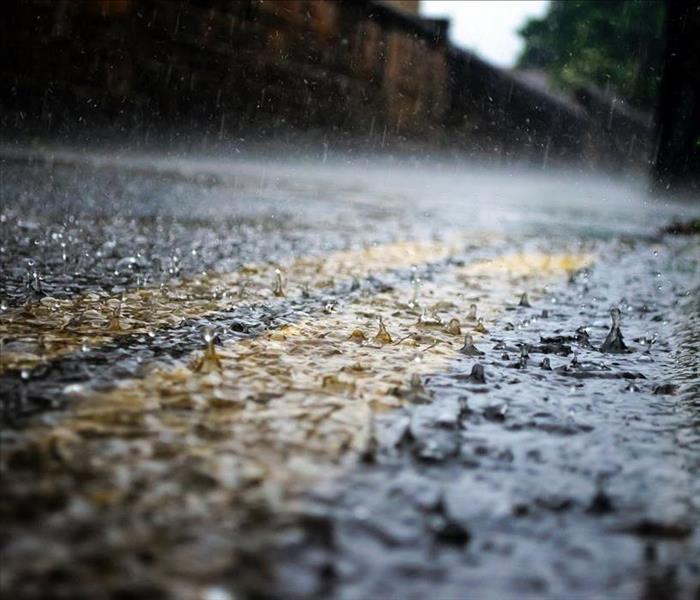What Makes Flood Water Contaminated? Preventing Stormwater Pollution
7/29/2021 (Permalink)
The next time a storm passes over your home, watch how the rain water moves from your roof, down your driveway and into the street. Some of it soaks into the soil to become groundwater and some evaporates into the air. But most of it will make its way to the nearest body of water. This is referred to as stormwater runoff.
As it flows over the land, water picks up and carries pollutants, litter, and sediments. Along the way, excess fertilizers and pesticides, pet waste, motor oil and antifreeze, cigarette butts, and other debris on the streets all can hitch a ride. Anything dumped or dropped on the ground or in the gutter pollutes the water. For this reason, any flood water that penetrates your home is considered contaminated.
This type of pollution is significant because, unlike the water that goes down a sink or toilet in your home, storm water is untreated and flows directly to a lake, river, or the ocean.
What can you do to prevent stormwater pollution?
- Don't dump waste into storm drains.
- Keep yard clippings out of the street.
- Dispose of household chemicals properly by following the directions on the package or by calling the local public works department for proper disposal guidelines.
- Clean up oil spills and fix leaking automobiles.
- Use drip pans to catch engine oil and other pollutants while repairing cars.
- Recycle used motor oil.
- Sweep driveways clean instead of hosing them down.
- Water your lawn by hand, or adjusted sprinklers to avoid over-watering. If any water flows off your lawn, you're using too much water.
- Wash your car at a commercial car wash, or at least wash your car on an unpaved surface so the excess water can be absorbed by the ground.
- Drain swimming pools and spas into a sanitary sewer outlet, never into a street. Check first with your local wastewater treatment plant before disposing of anything in the sewer.






 24/7 Emergency Service
24/7 Emergency Service
